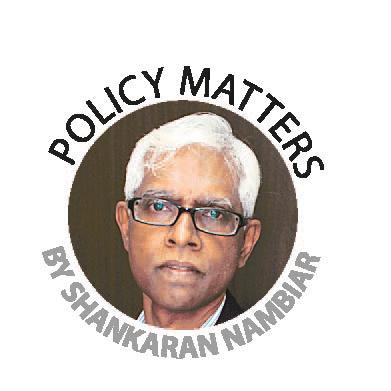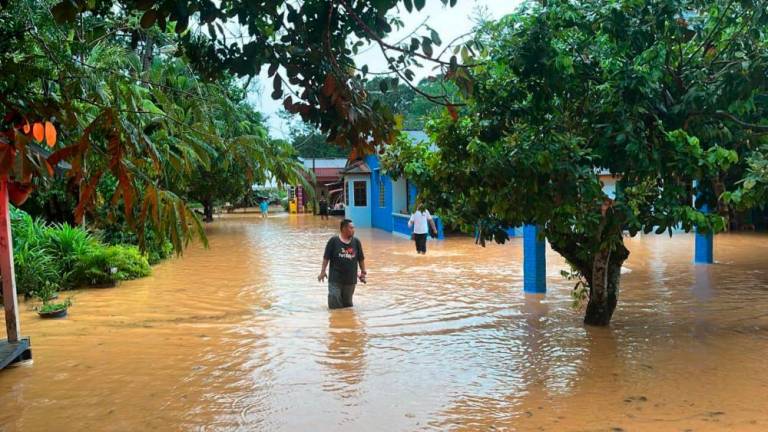CHINA had a favoured position in former prime minister Datuk Seri Najib Razak’s Malaysia. Najib’s last official visit to China was in May, 2017; it marked his seventh to the country since 2009. This visit was an important one because it was at the invitation of Beijing to join in the Belt and Road Forum for International Cooperation. It was attended by 27 national leaders.
Aside from President Xi Jinping and Premier Li Keqiang, Najib took the opportunity to meet Jack Ma, digital economy adviser to the Malaysian government. The latter was supposed to play a pivotal role in driving Malaysia’s Digital Free Trade Zone.
There was a time when China was noticeably present in Malaysia. This is aside from the fact that the country is Malaysia’s top trade partner and has enormous direct investments in Malaysia.
China’s interests in Malaysia, aside from trade, grew rapidly during Najib’s administration. China-funded initiatives include a deep-sea port in Malacca, the Malaysia-China Kuantan industrial park, not to mention vast tracts of commercial and residential property development projects.
China’s privileged position has changed after Najib’s loss in the 14th general election and the change in government.
Mahathir was quick to go to China after taking over the government. He suspended two huge infrastructure projects – the East Coast Rail Link costing RM55 billion and the gas pipeline projects in Sabah valued at RM9 billion.
China’s official response may have been reserved, but its media has not been guarded. Global Times, a state-controlled newspaper, was scathing in its comments, rebuking Malaysia for its “inconsistency and capriciousness”, adding that the “Chinese government will also take concrete measures to safeguard the interests and rights of Chinese enterprises.”
Mahathir appealed to China’s sense of goodwill in the shelving of the projects so as to overcome the weak fiscal situation he has inherited from his predecessor. But he did not leave without making cautionary remarks on the “new version of colonialism” that disadvantages poor countries in their trade relations with rich countries.
Mahathir’s comment could have been a veiled reference to Malaysia having succumbed to China’s version of colonialism, and the need to be wary of falling prey to the machinations of rich countries.
What then followed is a play in rebalancing Malaysia’s relations with China and Japan.
Mahathir has visited Japan thrice after taking office and the outcome has been stupendous. He has received the highest award from Emperor Akihito and was conferred an honorary doctorate by Tsukuba University.
Reportedly, a few Japanese universities have shown interest in setting up their branch campuses in Malaysia, Tsukuba University being the one that has expressed its willingness most strongly. It should be noted that China has a branch campus of its Xiamen Hospital. Wanting to study within the Japanese system is not a substitute for those keen on a Chinese system of education, but a wider range of options is open. The presence and exposure to the Japanese value system will be expanded with the future presence of Japanese branch campuses.
More immediately, Japan has extended its assistance to help Malaysia solve its debts. This has been done through the issuance of Samurai bonds valued at RM7.4 billion with a 10-year tenure and at a coupon rate of 0.65%. Mahathir has emphasised that the yen credit, which is to be followed by further tranches, is offered with no strings attached. Japan’s interest in helping Malaysia goes beyond easy credit facilities.
Mahathir has voiced interest in working with JR Kyushu to improve Malaysia’s railway system. JR Kyushu will be conducting a study on the national railway system in the first instance. There is also the possibility of working with Japan towards an Asian aircraft project, much in the model of the European Airbus. Details of the cooperation are not clear, but the aircraft project is supposed to build on Malaysia’s existing aircraft industry.
The desire for a closer relationship with Japan is familiar; it is a replay of Mahathir’s “Look East” policy during his earlier administration. What is unfamiliar is the distancing from China. But then, again, China was not a big player in the international arena 15 years ago, neither did China have a Belt and Road Initiative at that time. There was no question then of getting absorbed in China’s orbit of influence.
Keeping in mind that Mahathir was the 21st secretary-general of the Non-Aligned Movement (NAM), one can reasonably expect him to hold dearly to the principles of NAM. With that in the background, instead of perceiving Mahathir as distancing himself from China, it would be more accurate to characterise his strategy as “equidistancing” Malaysia from China. If that was not the intent, it very well should be.
Mahathir has pointed out that China never sought to colonise Malaysia despite the fact that 25% of the country’s population is of Chinese origin. This is a vote of trust in China as a friendly country that has no intention of meddling in the affairs of its neighbours in the region, even if it could exploit domestic circumstances to its advantage.
China’s importance is undeniable. Mahathir is a realist. He has conveyed as much himself when he underscored the point that Malaysia being a trading nation cannot afford to “quarrel with such a big market”.
Mahathir has long held the Japanese ethic in high esteem. Naturally, he will continue to look up to Japan and seek to forge stronger cultural, educational and economic ties with Japan.
Some of Mahathir’s initiatives might be to China’s disadvantage, but it is a disadvantage that is not calculated to hurt China; it is a disadvantage that logically flows from his preference for, or greater comfort with, and admiration for, things Japanese.
It is only inevitable that Mahathir’s personal proclivity will manifest in a certain tilt even if there is no change in official policy. And surely Mahathir, being the realist he is, will want no change to Malaysia’s policy on China.
Shankaran Nambiar is a senior research fellow at the Malaysian Institute of Economic Research. He is completing a forthcoming book entitled, “Malaysia: An economy at the edge of transformation”.














